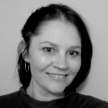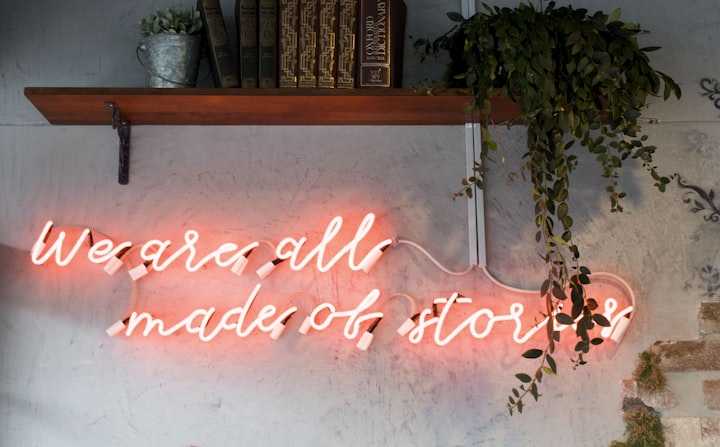Talk Elixir
How selective mutism (almost) destroyed my life

A few years ago I stumbled upon the term selective mutism (SM)on a social media page. I sat there, dumfounded, mouth agape as I read the words on the screen. ‘Selective mutism is an acute anxiety response’, ‘vocal chords become paralysed’, ‘unable to talk’, ‘often mistaken for shyness’. I could not believe it. I was reading….. ‘me’. With urgent intrigue I read on. ‘The inability to talk in certain situations or environments — typically school’.
There, in front of me, in black and white, was the missing piece to the puzzle. Here was the answer that had eluded me for so long. A wave of relief washed over me as I realized that ‘my problem’ was ‘a thing’. It was real! And other people had it! I devoured text after text, story after story, and my childhood, my life, started to make sense!
Unfortunately, this revelation came a little too late. I had, at fourty five, a trail of destruction behind me. The carnage included two serious drink-driving offences, two failed marriages, unemployment and a very rough parenting record. Carnage that, I would soon discover, was directly linked to my untreated SM.
My discovery of SM launched me on a quest of self discovery. I came to realize that the (once mysterious) affliction that had plauged me, caused me such frustration, such shame, such grief as a child was no longer just ‘my problem’. There is immense comfort in knowing that you are not alone.
I had, at a tragically young age accepted that I was just ‘wrong’. There was no other explanation. I was not like anyone else. I stood outside the circle of ‘normal’ while every other kid stood inside it. It wasn’t normal to ‘not talk’. I could talk at home just fine. In fact I was quite talkative, boistrous even, but at school I was practically mute. I had one friend whom I could talk to but if any other kids approach I would completely shut down. I whispered to teachers and pretty much only spoke when forced to. Daily life at school ranged from uncomfortable to excrutiating. My anxiety was completely debilitating at times, making it difficult to participate in tasks. I loved to learn and I longed to participate, to share, to reach my potential and shine. The SM was, sadly, an unyielding obstruction to this.
From the age of about ten, I was known at school as ‘the girl who doesn’t talk’. Kids would ask me, ‘why don’t you talk?’ The question terrified me. I would typically stand frozen to the spot, a lump forming in my throat, and shrug my shoulders, wishing the earth to swallow me up. I had no answer. I had no idea why I was the way I was. I just knew that I couldn’t. Not like them. I was different. It was agonizing.
Desperate to make sense of it all, I would closely observe other quiet kids. It became pretty clear, early on, that there was no one like me. I yearned to find someone, just once, who was like me. I watched shy kids, hoping they would be ‘worse than me’. They never were. They would always ‘come out of their shells’, and I would be left devestated. Each time, reinforcing my suspicion. I was unclassifiable. I was just ‘wrong’.
I pretty much endured school, right up until the last day of year twelve. I managed to pass each year — with average grades — which I find rather astonishing now, considering the learning climate I existed in. I managed to succeed, despite the handicap. School hadn’t been all bad. I had enjoyed aspects of it. I loved learning. I loved exploring new ideas, new concepts. It was the social aspect of school that put a dampner on it for me. Although I made a friend or two along the way, I would typically sit alone, in the library, pretending I was more interested in catchin up on my studies. I didn’t have time for frivolous socializing. In order to survive I adopted a persona that said ‘I don’t need people’. I built an impenetrable fortress around me to keep me safe.
Survival was paramount and at thirteen I made a discovery that would have a profound impact on my life. From the moment I felt it’s magical effects, I was sold. As the alcohol gloriously cursed through my veins, I knew I had found the answer. I felt an irresistable sense of safety and security. As it swaddled my body in its glorious warmth I discovered another crucial perk. From this state of safety, where all is well with the world, I found myself talking to people. The fear dissolved and my voice emerged from it’s long hibernation. The more alcohol I drank, the more lubricated my throat became and the more I found myself talking, like normal people. I had finally discovered the solution to ‘my problem’. This magical substance, created by nature and man had been made just for me. It was obvious. Alcohol, my talk elixir, was the missing piece to the puzzle. Alcohol was to become my best friend, my adored compion— and my worst enemy.
Throughout my adolescence I used alcohol, without exeption, at every opportunity that required socializing. I was oblivious to my growing dependence — both physically and psychologically — on it. By the age of twenty it had become such an essential part of me — the crucial element that made me whole- me and alcohol were inseperable. Talking to people (other than a few select people, such as family members, or my boyfriend)necessitated it. This was non negotiable to me. Even as I became aware of and concerned about my dependence on it, I knew I had no choice. People who can’t use their legs have wheel chairs to help them; I have this, I thought. I had accepted my affliction, as mysterious as it remained, and had undertaken treatment. I was self medicating.
I continued to rely heavily on alcohol to ‘get through’ social situations, into my twenties, thirties and fourties. My relationship with alcohol required astute management skills, particularly as I navigated motherhood. My attempts to juggle it all, compartmentalize my life, was doomed from the outset. Juggling is not sustainable for prolonged periods, particularly when there are so many balls in the air. At some point, ‘something’s gotta give’. At some point, you loose your focus and the balls drop, one by one, until, there they go, all of them, rolling away along the floor.
While alcohol served me well in one way, it’s sinister nature took hold and before long it had pushed me out of the driver’s seat, taken the wheel. I became a passenger in my life. Hyjacked, and travelling at a dangerous speed, I could not escape. Scenes of my life whooshed by in a blur. I missed alot. I let my children down continually and almost lost them. I caused such pain and trauma to my children and my family. This didn’t curb my drinking. In order to escape the torturous guilt I drank more. Alcohol was no longer a mere talk elixir, it was now my fix all. I was lost in a cycle of self loathing and futile attempts to escape it all by drinking. I couldn’t sustain work. I have had countless job fails over the years and while many of them were doomed because they were not the right fit for me with my SM, they were impacted largely by my drinking, my inability to cope. My sense of failure grew as relationships broke down due to my drinking. The guilt of having taken away my children’s chance at growin up in a family with both parents overwhelmed me. It was a complete disaster. I was a complete disaster. The solution I had found to fix ‘my problem’ had become a problem itself. A problem that surpased all others. A problem that wasn’t just effecting me, but everyone I loved.
At my lowest point, I pushed my children away. In hindsight, I was protecting them. Convinced I was toxic and harmful to them, I reasoned that they were better off without me. I had no idea how to escape this hell and I was not going to drag them down with me. They were best to stop caring for me. I pushed them away and towards the other, more responsible and capable adults in their lives. Those adults clearly cared for them and I couldn’t . I actually questioned my capacity to love my own children. How could I love them when I was putting through such trauma? And why did I think I could ever be a mother in the first place? Good mothers are normal people. People who are able to talk to other mothers at their children’s school, people who have friends. I was hopeless.
I surrendered to the fact that this was my lot in life and pretty much awaited my fate. I muddled through trying to appear as though I was still trying. My children were stubborn. They had not given up on me, despite myself. Today, I’m glad they didn’t.
Following my discovery of SM, and my subsequent soul searching, I eventually arrived at a place of self acceptance. I learned about SM, the nature of it. I came to understand how, when left untreated it can manifest in ugly ways. This ignited a paradigm shift. With knew understanding and a gentler, more forgiving attitude to myself, I was ready to let the guilt go. I gained the strength to push aside the beast and reclaim the wheel.
I plunged into a world of information, philosphies. I explored buddhism and in doing so, practiced more helpful, productive ways of thinking. One snippet of enlightenment that helped me ‘get over myself’ was ‘what other people think of you is none of your business’ (Timber Hawkeye, Buddhist Bootcamp). When this concept really sunk in, it was liberating. The shame of my past melted away a little each time I entertained it. It didn’t matter how other people viewed me, judged me. Other’s perceptions of you are their own prerogative. I sought out help in a myriad of ways. I came to the conclusion that guilt was going to keep me captive in a perpetual cycle of self sabotage and I decided to let it go.
I went to AA where I learned to differentiate between guilt and remorse. I now see that you can feel remorseful, sad, about something without the added burden of guilt. Guilt, for me, serves no purpose. It is destructive and dangerous. I gained clarity, insight about myself and I identified what it was I needed to do in order to stay safe. I needed to accept myself, my quiet, sensitive self. I needed to assert my needs, protect my boundaries.
Today, almost eighteen months sober, I enjoy a life free from the shackles of alcohol. I resist the temptation to reflect on my past with self hatred, or regret. My journey has not been easy. Not for me. Not for my children. But they have a mother. They have a mother who has been fortunate enough to intercept certain tragedy. They have a mother who is here. They have a mother who knows her limits and asserts herself accordingly. They have a mother who, when she knows a social situation is beyond what she feels she can handle, speaks up for herself, politely opts out, and doesn’t feel shame or guilt about it. They have a mother, who has finally found her voice.
Today, I am confident that my unadressed SM was the catalyst for my downward spiral. There are other contributing factors that come into play, of course. I am aware of a genetic link to alcoholism in my family and who knows, perhaps I was destined to become alcohol dependent and descend into the chaotic mess that I did. But I am convinced that my (unadressed) SM had a profound, negative impact. Today, I am grateful for the level of contentment that I have. I wasn’t defective after all. I was, I am, just different.
About the Creator
Jania Williams
I have always found verbal communication challenging, so I write.






Comments
There are no comments for this story
Be the first to respond and start the conversation.